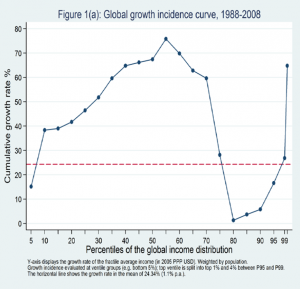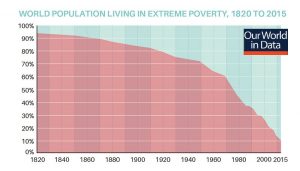by Su-ming Khoo
This blog post responds to earlier posts by Julia Schöneberg and Julia Schöneberg and Henning Melber registering continuing disenchantment with ‘development’, concern with a lack of consensus and common definition, and calling for its abolition. Julia’s first blog argued that we should not become the unwitting bearers of a vision of development that we disagree with, and that serves the interests of the most privileged. Three decades after it first emerged, ‘postdevelopment’ is enjoying a moment of renewal. ‘Development’ disavowal is accompanied by proposals, for example Orbie and Delputte recently called for a halt to EU aid and development cooperation and abolition of the EU Development programme, and its eventual replacement with a ‘Post-development Commissioner’ .
In this post, I acknowledge the critique of ‘development’ and endorse the importance of critical development theory. I agree with the reforms proposed for a new, European ‘post-development policy’. However, I want to emphasise that the call for abolition is problematic – the existence of the office and agency represent official commitments to enact cooperation and the rhetoric of disavowal is problematic on its own because it confuses the specific and material dimensions of injustice – cognitive, distributional and political and denies the conative (striving) aspect of development, as well as the importance of the agency that has most responsibility for action – the state.
As Pieterse points out, the post-development perspective is merely one of several critical approaches to development. The Latin American ‘Dependency school’ has addressed the question of global inequality much more directly than postcolonial theory. ‘Alternative development’ highlights the need to address the question of popular participation and the democratization of development processes. Human development addresses the normative foundations of human wellbeing and flourishing. Post-development is not all that different to these alternatives in criticizing the underlying motives and outcomes of ‘development’, but what sets it apart is its rejection of the concept of ‘development’ as the problem in itself.
But I’m going to stick my neck right out here and suggest that we should not rush to ‘end development’ – for at least two reasons. The first, notwithstanding perfectly good reasons for wanting to dissociate ourselves from colonial development, is that development isn’t ‘ours’ to end. The second is that ending the use of the term will not itself result in moving the elephant out of the room. It veils the problem and underwrites the persistence of what Hickel calls ‘New Optimism’. ‘New Optimism’ obscures more radically redistributive alternatives. Meanwhile, social progress, by renaming, obstructing and eliding public debate about what the latter means .
Let me explain my two main reservations
Development isn’t ‘ours’ to end
First, I disagree with the objection that ‘development’ has ‘too many’ meanings – indeed I suggested (Khoo 2015) that we need to understand ‘development’ as an emergent and contested concept, and accept that different understandings emerged out of different struggles, each with their own context. In this sense, less consensus is needed, not more, for alternatives to emerge. What we should give up is our desire to be the creators of consensus and our need to control the discourse as if ‘development’ belongs to ‘us’. We do not need ‘develop’ less, but we do need to cooperate more. By insisting that ‘development’ is a monolith, we monopolize its meanings and obscure politically and historically important visions and proposals that have emerged, not just from outside the global North or West but also within Northern/Western societies. I agree that the Eurocentric, modern-colonial ‘mainstream’ of ‘development’ should be rejected, along with its implications of resource and territorial annexation and racist epistemological ordering. These fundamental structural properties of ‘development’ and the dominating, partial and false universalisms that accompany them must be rejected. But when we talk about nothing but this ‘failed’ version of ‘development’, we also strenuously avoid and silence alternative versions and ongoing struggles to redefine ‘development’ and cooperation in different ways. Many alternative perspectives critique and demand overhauls without rejecting ‘development’ outright. The term still means something to many people, even those who have problems with it. ‘Development’ means having an intentional perspective on the present, and a sense of disappointment with the present, as well as hope and striving for a future that is different and possibly ‘better’. It also usually directs its critiques to specific political authorities – governments and international organizations, and tasks these agencies with the duties to act.
The elephant AKA DWEIB
My second discomfort is concerned with the very obvious elephant in the room: growing global inequality. Julia and Henning, in the preface of their blog piece, raise the issues of the rise of right-wing populism, predatory capitalism and authoritarian regimes. They criticise the World Bank’s growth orientation and point to its stubborn blanking of growing global inequality. This ‘blanking’ creates an implicit sense of acceptance. I find this most uncomfortable – the unwillingness to address the elephant in the room directly makes it seem like we are okay with it being there. Roge Karma’s recent piece in Current Affairs gives the elephant a name – ‘DWIEB – don’t worry (about inequality), everything is better now’.
DWEIB is reflected in an important 2013 paper on global inequality (Lakner and Milanovic, 2013) that presented an elephant-shaped graph depicting the world’s poorest as ‘catching up’, becoming ‘non-poor’ and ‘graduating’ into a new ‘global median class’. The poor’s incomes (in the ‘rump’ of the elephant) are depicted rising rapidly, driven by trends in India and China. The ‘rump’ of the elephant seems to describe recent world economic growth as an era of developmentalism, distributing shared prosperity through economic growth:

Lakner and Milanovic suggest that China ‘graduating from the bottom ranks’ – was the biggest element modifying the overall shape of the global income distribution and creating an important global “median” class. Note that this graph focuses on income growth rates, not actual income or wealth. The kink in this good news story is obviously the cohort of ‘losers’ – the downward-sloping ‘forehead’ of the elephant, whose share of world income growth is declining. It is politically significant because this is a politically influential section of society – the better-off middle class in the richer countries who have been relied upon to support national and global social-redistributive policies and social cohesion, but seem no longer wiling to play ball. In truth, the ‘face of the elephant’ does not tend to look at its own behind – at how ‘well’ the very poor are doing – instead their attention fixes on the gap between their prospects and those of the richest in the top 1%, whose growth gains are rising rapidly and to an extraordinary extent– the very tip of the ‘elephant’s trunk’.
The DWEIB story is simplified to remove this ‘kink’ if we opt for an even simpler graph, from the Max Roser open-source development data resource ‘Our World in Data’. This unambiguously shows the bad thing going down (number of people living in extreme poverty) and the good thing going up (number of people not in extreme poverty).

This was the ‘data’ that Henning and Julia mentioned, that encouraged the conservative Brookings Institution to announce in September 2018 that ‘the poor and vulnerable will no longer be a majority in the world.” This view directly contradicts other analyses by Oxfam and other left-leaning economists like Piketty, Atkinson, Bourguignon and Hickel that wealth and income inequality are increasing very dramatically and worryingly. Roge Karma coined the ‘Don’t Worry, Everything Is Better now’ (DWEIB, pronounced ‘dweeb’) to describe the abuse of simplified data to defend the status quo. The problem with this poverty graph is the incredibly low defining line distinguishing ‘poor’ and ‘not-poor’ – $1.90 a day PPP, that is what $1.90 would buy you in the USA. This low threshold results in the ‘facts’ showing fewer people in poverty and poverty going down, despite other data showing hunger rising. $1.90 would not buy you adequate nutrition, let alone shelter, clothing, health care or education in the USA. Promoting the understanding of ‘development’ in terms of economic growth shares is unsustainable and oppressive, and so is defining ‘poverty’ as low as $1.90 PPP a day. This amounts to exactly enough to buy one large portion of fries in McDonalds and, literally, nothing more. Hickel suggests that a more realistic global absolute poverty line is at least $6.50 a day PPP. The national absolute poverty line for the USA it is actually $15 a day’ (Kenny and Hickel 2018).
The elephant in the room is how a relational measure of inequality has been replaced by an absolute conception of poverty, an elephant known as DWEIB.
Untying the elephant from ‘development’ is impossible
Postcolonial studies has successfully allowed us to question the metanarratives and parochialize so-called universalisms. However, an inclusive future requires a different intellectual framework for understanding the nature of oppression, given the consolidation of intolerable inequalities, within and between the Global North and Global South. While decolonial theorists call for more incommensurability so that the Global South can resist Euro-centrism (Lal 2012), this should not negate the need to understand the shift in the global language and frame for discussing inequality as a global problem. The decision to reframe poverty using a very minimal level impacts how much inequality matters to us, while avoiding any discussion of maximally capture of income growth by the top 1%. This level of income, wealth and growth capture directly influences money-politics, vote-rigging, the decline of redistributive social policies and the rise of rightwing populism.
The development crises we face are crises of world-making. We wish to avoid ‘replacing one amoeba with another’ and recognise that ‘sustainable development’ and ‘transformation’ are just as vague and potentially status quo and system-serving as ‘development’. I agree that there are good reasons for ‘ending’ Eurocentric forms of development that harm, exploit, extract and fail to do good. However, replacing the term ‘development’ with other words no matter how meaningful-sounding, will not be enough to form a bulwark against social corrosion, nor can it produce substantive, shareable hope and meaningful cooperation. Removing the word ‘development’ and the agencies tasked with cooperation, no matter how badly they do it, will still not change our thinking if we refuse to think honestly about global and within-country inequality.
Su-ming Khoo is lecturer in the School of Political Science and Sociology at NUI Galway. She is interested in development, human rights and higher education.
